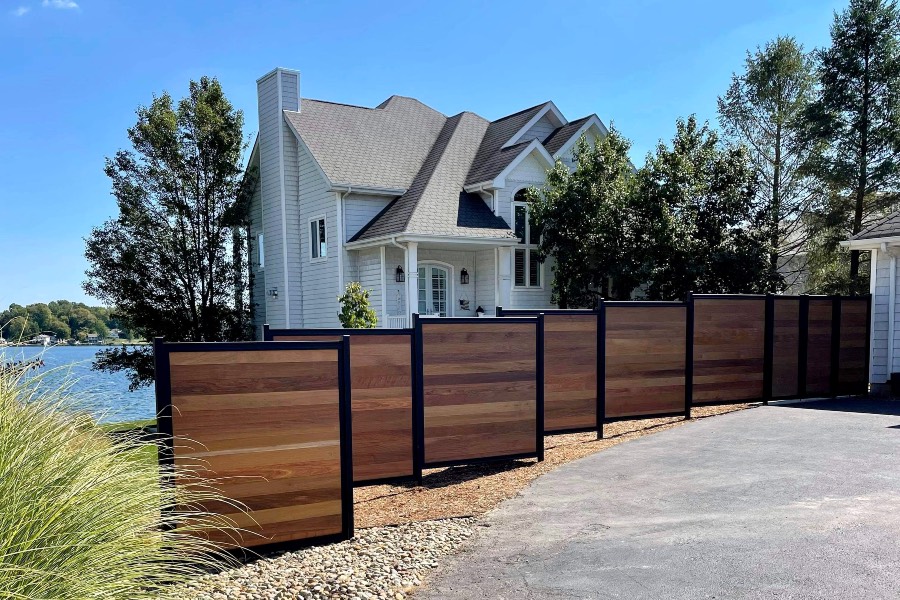All Categories
Featured
When you choose to install a fencing around your domestic property, it's crucial to understand the license requirements specific to your location. Below's an extensive appearance at the licenses you might require for fencing installment.
Why Do You Required a Permit for Fencing Setup? A fence is more than simply an obstacle between homes-- it can affect security, residential or commercial property value, looks, and also environmental conditions. City governments call for authorizations to make certain that fences fulfill certain requirements and do not create troubles for utilities, next-door neighbors, or the community overall. Permits likewise guarantee that the installment adheres to zoning legislations, constructing codes, and safety regulations.
![]()
Sorts Of Permits You Might Need. Structure Authorization. A structure license is one of the most usual permits needed for fence installment. If you're developing a fencing over a particular elevation (normally over 6 feet), you'll likely need a structure license.
Zoning License. A zoning license ensures your fencing conforms with place, obstacle, and height guidelines. Fences might need to be set back a certain distance from walkways, roads, or building lines to avoid obstruction or disturbance with utilities.
HOA Authorization. You might require to seek authorization prior to setting up a fence if your building is component of a homeowners association (HOA) HOAs typically have guidelines that regulate the aesthetics and structure of fences to guarantee they are in consistency with the neighborhood. You might need to send your prepare for authorization, and the HOA may limit fencing elevation, style, or product.
Specialty Permits. In some locations, there might be extra permits required for particular situations. If your fencing is near a secured ecological area or located in a flood zone, you may require to obtain specialty authorizations connected to ecological effect. Similarly, if the fence remains in a location with below ground utilities, you might require to get clearance to avoid destructive pipelines or cable televisions.
![]()
Easement or Utility Firm Permission. Prior to mounting a fencing, it's crucial to check whether the residential or commercial property consists of an easement, such as an energy easement, which could impact where you can position your fencing. Easements are locations of land assigned for private or public utilities, and you might require approval from the utility company or other authority to develop within this location.
Just How to Discover What Permits You Need. To make certain that you're following all the needed laws, right here's how you can figure out the specific licenses required for your fencing installment:
![]()
Browse Through Your City Government Office: The very first action is to check with your neighborhood building or zoning division. Several cities and regions have standards readily available online that specify what sorts of licenses are required for fencing installment. If not, calling or checking out the workplace in person can aid make clear the process. Examine Your City's Internet site: Many towns provide information concerning fence installments and the licenses needed with their main web sites. Some internet sites also permit you to send applications on-line. Get In Touch With a Fence Installment Specialist: If you're uncertain regarding regional guidelines, an expert fence contractor can aid. They know with the permitting process and can lead you with the actions. The Consequences of Not Obtaining a Permit. Stopping working to protect the essential authorizations prior to setting up a fencing can lead to significant repercussions. You may be fined or called for to get rid of the fence completely. Furthermore, if you make a decision to offer your property in the future, the absence of a permit might prevent prospective customers, as they might see it as a sign that the property is not compliant with neighborhood regulations. Making certain that you have the appropriate licenses will conserve you time, cash, and migraines in the future.
Verdict. Installing a fence around your domestic home can add both safety and aesthetic appeal, yet it is very important to guarantee you're adhering to the lawful steps in the process. Looking into the particular permit requirements for your area, including building permits, zoning policies, HOA approval, and utility permissions, will certainly assist guarantee your fence setup goes smoothly. Putting in the time to understand these demands currently can save you from costly blunders and possible lawful issues down the line.
Why Do You Required a Permit for Fencing Setup? A fence is more than simply an obstacle between homes-- it can affect security, residential or commercial property value, looks, and also environmental conditions. City governments call for authorizations to make certain that fences fulfill certain requirements and do not create troubles for utilities, next-door neighbors, or the community overall. Permits likewise guarantee that the installment adheres to zoning legislations, constructing codes, and safety regulations.

Sorts Of Permits You Might Need. Structure Authorization. A structure license is one of the most usual permits needed for fence installment. If you're developing a fencing over a particular elevation (normally over 6 feet), you'll likely need a structure license.
Zoning License. A zoning license ensures your fencing conforms with place, obstacle, and height guidelines. Fences might need to be set back a certain distance from walkways, roads, or building lines to avoid obstruction or disturbance with utilities.
HOA Authorization. You might require to seek authorization prior to setting up a fence if your building is component of a homeowners association (HOA) HOAs typically have guidelines that regulate the aesthetics and structure of fences to guarantee they are in consistency with the neighborhood. You might need to send your prepare for authorization, and the HOA may limit fencing elevation, style, or product.
Specialty Permits. In some locations, there might be extra permits required for particular situations. If your fencing is near a secured ecological area or located in a flood zone, you may require to obtain specialty authorizations connected to ecological effect. Similarly, if the fence remains in a location with below ground utilities, you might require to get clearance to avoid destructive pipelines or cable televisions.

Easement or Utility Firm Permission. Prior to mounting a fencing, it's crucial to check whether the residential or commercial property consists of an easement, such as an energy easement, which could impact where you can position your fencing. Easements are locations of land assigned for private or public utilities, and you might require approval from the utility company or other authority to develop within this location.
Just How to Discover What Permits You Need. To make certain that you're following all the needed laws, right here's how you can figure out the specific licenses required for your fencing installment:

Browse Through Your City Government Office: The very first action is to check with your neighborhood building or zoning division. Several cities and regions have standards readily available online that specify what sorts of licenses are required for fencing installment. If not, calling or checking out the workplace in person can aid make clear the process. Examine Your City's Internet site: Many towns provide information concerning fence installments and the licenses needed with their main web sites. Some internet sites also permit you to send applications on-line. Get In Touch With a Fence Installment Specialist: If you're uncertain regarding regional guidelines, an expert fence contractor can aid. They know with the permitting process and can lead you with the actions. The Consequences of Not Obtaining a Permit. Stopping working to protect the essential authorizations prior to setting up a fencing can lead to significant repercussions. You may be fined or called for to get rid of the fence completely. Furthermore, if you make a decision to offer your property in the future, the absence of a permit might prevent prospective customers, as they might see it as a sign that the property is not compliant with neighborhood regulations. Making certain that you have the appropriate licenses will conserve you time, cash, and migraines in the future.
Verdict. Installing a fence around your domestic home can add both safety and aesthetic appeal, yet it is very important to guarantee you're adhering to the lawful steps in the process. Looking into the particular permit requirements for your area, including building permits, zoning policies, HOA approval, and utility permissions, will certainly assist guarantee your fence setup goes smoothly. Putting in the time to understand these demands currently can save you from costly blunders and possible lawful issues down the line.
Latest Posts
Uncover the Premier Auto Repair Offers in Montclare, Chicago
Published May 28, 25
1 min read
Improve Your Residential Property with Expenses Door Solution
Published May 23, 25
1 min read
Discover Reduce Expenses on Car Maintenance with Montclare Auto Repair’s Special Deals
Published May 18, 25
1 min read